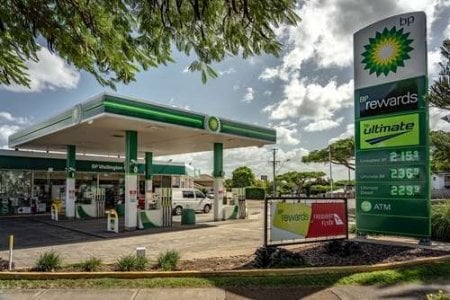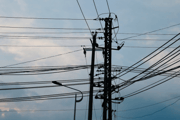State Premier eyes daily cap on fuel prices amid cost-of-living crisis
By
Danielle F.
- Replies 16
As we all know, the cost of living is a hot topic across Australia.
For community members with fixed incomes, any promise to ease the financial burden receives both hope and a healthy dose of scepticism.
It's time to buckle up, for a significant fuel price promise is on the horizon, and it could change the game for millions of drivers.
The Queensland Premier, Steven Miles, revved up his election campaign with a pledge that fuelled conversations across the state.
If re-elected in October, his government could establish state-owned fuel stations and introduce a cap on daily fuel price increases.
This bold move could mean a more affordable way to keep petrol tanks full.
Miles proposed the construction of 12 government-run stations that would offer petrol, diesel, and electric chargers for motorists.
'They will charge a fair price, increase competition, and give Queenslanders more choice when filling up,' Premier Miles said.
The Premier also wants to put brakes on how often petrol stations can hike their prices.
Under his plan, petrol stations cannot raise prices more than once a day and would be required to announce price changes a day in advance.
As part of an ongoing trial with the Royal Automobile Club of Queensland (RACQ), price increases would be capped at no more than 5 cents per litre a day.
The strategy aims to operate these stations on a 'cost-recovery' basis.
This also means they would recognise revenue and the cost of sales for each transaction but would wait to count the profit immediately.
The locations of these stations are still to be determined, but competition has to be injected where it's needed.
This could prevent 'big petrol players' from price-gouging Queensland motorists.
'The costs associated with owning and driving a car can add up, but most Queenslanders, especially in the regions, need a car to get around, drop the kids at school, or to do their work,' Premier Miles shared.
'It's not a simple issue to fix. We don't control global oil prices, and we can't force privately owned petrol retailers to charge less. Still, the government I lead will do whatever we can to bring petrol prices down.'
However, not everyone is on board with this fuel price promise.
Deputy opposition leader Jarrod Bleijie called it 'economic vandalism' and expressed concern that it could wipe out independent retailers, reduce competition and potentially drive up petrol prices.
Liberal-National leader David Crisafulli also criticised the plan, calling it a sign of desperation.
The RACQ, on the other hand, supported the idea of capping daily petrol price fluctuations.
Yet, the RACQ reserved their judgement on the state-owned fuel stations until more details are available.
Meanwhile, industry bodies like the Australian Convenience and Petroleum Markets Association and the National Retail Association expressed scepticism.
Both industry giants warned that the move could be risky, may not be the 'silver bullet' for high fuel prices, and could harm independent stores with taxpayer-funded competition.
This is a development worth watching, as it could lead to significant savings on one of the most substantial household expenses.
As with any political promise, the proof will be in the pudding—or, in this case, the petrol pump.

Do you think state-owned fuel stations are the answer to high petrol prices? Are you concerned about its impact on independent retailers? We would love to hear your thoughts on this fuel price promise in the comments below.
For community members with fixed incomes, any promise to ease the financial burden receives both hope and a healthy dose of scepticism.
It's time to buckle up, for a significant fuel price promise is on the horizon, and it could change the game for millions of drivers.
The Queensland Premier, Steven Miles, revved up his election campaign with a pledge that fuelled conversations across the state.
If re-elected in October, his government could establish state-owned fuel stations and introduce a cap on daily fuel price increases.
This bold move could mean a more affordable way to keep petrol tanks full.
Miles proposed the construction of 12 government-run stations that would offer petrol, diesel, and electric chargers for motorists.
'They will charge a fair price, increase competition, and give Queenslanders more choice when filling up,' Premier Miles said.
The Premier also wants to put brakes on how often petrol stations can hike their prices.
Under his plan, petrol stations cannot raise prices more than once a day and would be required to announce price changes a day in advance.
As part of an ongoing trial with the Royal Automobile Club of Queensland (RACQ), price increases would be capped at no more than 5 cents per litre a day.
The strategy aims to operate these stations on a 'cost-recovery' basis.
This also means they would recognise revenue and the cost of sales for each transaction but would wait to count the profit immediately.
The locations of these stations are still to be determined, but competition has to be injected where it's needed.
This could prevent 'big petrol players' from price-gouging Queensland motorists.
'The costs associated with owning and driving a car can add up, but most Queenslanders, especially in the regions, need a car to get around, drop the kids at school, or to do their work,' Premier Miles shared.
'It's not a simple issue to fix. We don't control global oil prices, and we can't force privately owned petrol retailers to charge less. Still, the government I lead will do whatever we can to bring petrol prices down.'
However, not everyone is on board with this fuel price promise.
Deputy opposition leader Jarrod Bleijie called it 'economic vandalism' and expressed concern that it could wipe out independent retailers, reduce competition and potentially drive up petrol prices.
Liberal-National leader David Crisafulli also criticised the plan, calling it a sign of desperation.
The RACQ, on the other hand, supported the idea of capping daily petrol price fluctuations.
Yet, the RACQ reserved their judgement on the state-owned fuel stations until more details are available.
Meanwhile, industry bodies like the Australian Convenience and Petroleum Markets Association and the National Retail Association expressed scepticism.
Both industry giants warned that the move could be risky, may not be the 'silver bullet' for high fuel prices, and could harm independent stores with taxpayer-funded competition.
This is a development worth watching, as it could lead to significant savings on one of the most substantial household expenses.
As with any political promise, the proof will be in the pudding—or, in this case, the petrol pump.
Key Takeaways
- Queensland Premier Steven Miles has promised to build state-owned fuel stations and introduce a cap on daily fuel price increases if re-elected.
- The government's competitive pricing and daily price increase limit aim to drive down fuel costs for Queensland drivers.
- The opposition criticised the plan, calling it 'economic vandalism' and expressing concerns about its impact on independent retailers.
- The RACQ supports the idea of capping petrol price fluctuations but brought up discussions about the impact of state-owned fuel stations.








